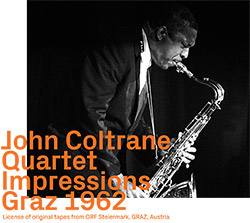
Taking his quartet on a European tour in the fall of 1962, Coltrane's band with McCoy Tyner on piano, Jimmy Garrison on double bass, and Elvin Jones on drums performed in Graz, Austria at Stefaniensaal, the concert beautifully recorded by ORF Steiermark and here released as the first of two volumes, showing both Coltrane's lyrical origins and expanding free inclinations.
In Stock
Quantity in Basket: None
Log In to use our Wish List
Shipping Weight: 3.00 units
EU & UK Customers:
Discogs.com can handle your VAT payments
So please order through Discogs
Sample The Album:
John Coltrane-tenor saxophone, soprano saxophone
McCoy Tyner-piano
Jimmy Garrison-double bass
Elvin Jones-drums
Click an artist name above to see in-stock items for that artist.
UPC: 752156101925
Label: ezz-thetics by Hat Hut Records Ltd
Catalog ID: ezz-thetics 1019
Squidco Product Code: 28368
Format: CD
Condition: New
Released: 2019
Country: Switzerland
Packaging: Cardboard Gatefold
Recorded at Stefaniensaal in Graz, Austria, on November 28th, 1962, by ORF Steiermark.
"When John Coltrane toured Europe and Scandinavia with his quartet in the Fall of 1962, he was already embroiled in what was to develop over the years into an ongoing hailstorm of critical controversy. His personal odyssey to expand his knowledge and spirituality (which were indivisible in his perspective) through the exploration of music had, since 1957, inspired him to enter into an intense, thorough examination and reconfiguration of chordal harmony (his so-called "sheets of sound" period), then (thanks to an initiation by Miles Davis and George Russell) shift into modal structures that ultimately would allow him
to loosen even further the constraints of harmony and rhythm, within a few years soaring into regions of "free" expression.
A number of critics and listeners alike were unable to penetrate the dense phrasing and chordal labyrinths of his late '50s Prestige recordings as a leader, and when Coltrane rejoined Miles Davis after an enlightening time in the Thelonious Monk quartet, he continued to puzzle at least a portion of the audience - as can be heard in the background of his solo on the Davis group's live version of "Bye Bye Blackbird" from Paris, 21 March 1960. By the time Coltrane returned to tour the Continent the next year, this time leading his own band including multi-reedist Eric Dolphy, the criticism had become more strident. John Tynan, in the pages of down beat, described the group as playing "musical nonsense," and claimed Coltrane and Dolphy "...seem bent on pursuing an anarchistic course in their music that can but be termed anti-jazz."
There's no doubt that Coltrane found Dolphy a kindred spirit, another explorer on a slightly different analytical path, and their 1961 live recordings together - especially those captured at the Village Vanguard - reveal a tectonic shift in Coltrane's approach, from transformational (in his probing, reconstructive use of standard material) to transcendental (both in motivation and the necessity of creating a newer, original format for his quest). It is interesting to read Coltrane's own thoughts on the matter at this time (I recommend Coltrane on Coltrane [Chicago Review Press], edited by Chris DeVito), especially his interest in the more unfettered playing of John Gilmore with Sun Ra (he particularly cites "Chasin' the Trane" from the Village Vanguard gigs as being influenced by Gilmore), and his attraction to the "freer" playing of Ornette Coleman; the addition of Dolphy brought him closer to both of those areas of investigation.
Coltrane's decision to cut back to a quartet for his 1962 European and Scandinavian tour was based on two reasons: one, pragmatic, as Dolphy had put together his own quintet, and two, creative, as Coltrane wanted to concentrate on a broader, distinctive approach to each of his instruments, the tenor and the soprano, while also developing a deeper interactive relationship with the other members of his quartet. McCoy Tyner offered a lyrical contrast to Coltrane's expansive essays, and Elvin Jones was beginning to push the saxophonist into uncharted rhythmic zones. Moreover, Jimmy Garrison had replaced another fine bassist, Reggie Workman, but brought a different sense of time feel and tonal solidity to the ensemble.
These are among the complex circumstances that Coltrane faced in November 1962. The program for the Graz concert was typical of the material the quartet revisited consistently throughout the tour. But the selections on this first volume have a pair of curiosities among them. "I Want to Talk About You" was one of Coltrane's favorite ballads from the time he first recorded it for Prestige in 1958, and he would continue to caress it not by running through its chords but in his most lyrical, melodically-inflected fashion - and conclude, as he does here, with an extended cadenza bordering on free paraphrase - for several years after. "Impressions" was another regular item in his repertoire, appearing initially at a Newport '61 concert; Tyner's piano is most impressive, and listen for Coltrane's anticipation of motifs that hint at A Love Supreme, still two years in the future.
The curiosities, however, are "Autumn Leaves," which makes its only appearance among Coltrane's recordings here, and "The Inch Worm." The arrangement of "Autumn Leaves" is reminiscent of "Softly as In a Morning Sunrise" from the previous year's Village Vanguard performances. Tyner's piano intro seems especially motivated, and Coltrane's soprano entrance immediately launches into a hypnotic solo. "The Inch Worm" seems an unusual choice, a sentimental little melody composed by Frank Loesser and sung by Danny Kaye in the 1952 film Hans Christian Andersen. But as a potential modal vehicle for the soprano saxophone, it quickly becomes apparent that this simple tune in waltz-time - like the similar attempts with "Greensleeves" and "Chim Chim Cheree" - was aimed at recapturing the "My Favorite Things" formula. None of them had the sustained appeal of "Things," though, as we'll see in the upcoming release: John Coltrane Quartet : My Favorite Things Graz 1962 on ezz-thetics 2020."-Art Lange, Chicago, November 2019
"Executive Producer's note: The four tracks on this first release have been selected from the 1962 concert tape which Hat Hut Records has licensed from ORF Steiermark, Graz, Austria. I approached the program as I would have done with a studio recording, by deciding not simply to reproduce the concert, but to present the music from a dramatic perspective. The second release, which hopefully will follow soon, will present the concluding portion of the concert with a different dramatic perspective."-Werner X. Uehlinger
Artist Biographies
• Show Bio for John Coltrane "John Coltrane, in full John William Coltrane, byname Trane, (born September 23, 1926, Hamlet, North Carolina, U.S.-died July 17, 1967, Huntington, New York), American jazz saxophonist, bandleader, and composer, an iconic figure of 20th-century jazz.John Coltrane, 1966. Coltrane's first musical influence was his father, a tailor and part-time musician. John studied clarinet and alto saxophone as a youth and then moved to Philadelphia in 1943 and continued his studies at the Ornstein School of Music and the Granoff Studios. He was drafted into the navy in 1945 and played alto sax with a navy band until 1946; he switched to tenor saxophone in 1947. During the late 1940s and early '50s, he played in nightclubs and on recordings with such musicians as Eddie ("Cleanhead") Vinson, Dizzy Gillespie, Earl Bostic, and Johnny Hodges. Coltrane's first recorded solo can be heard on Gillespie's "We Love to Boogie" (1951). Coltrane came to prominence when he joined Miles Davis's quintet in 1955. His abuse of drugs and alcohol during this period led to unreliability, and Davis fired him in early 1957. He embarked on a six-month stint with Thelonious Monk and began to make recordings under his own name; each undertaking demonstrated a newfound level of technical discipline, as well as increased harmonic and rhythmic sophistication. During this period Coltrane developed what came to be known as his "sheets of sound" approach to improvisation, as described by poet LeRoi Jones (later Amiri Baraka): "The notes that Trane was playing in the solo became more than just one note following another. The notes came so fast, and with so many overtones and undertones, that they had the effect of a piano player striking chords rapidly but somehow articulating separately each note in the chord, and its vibrating subtones." Or, as Coltrane himself said, "I start in the middle of a sentence and move both directions at once." The cascade of notes during his powerful solos showed his infatuation with chord progressions, culminating in the virtuoso performance of "Giant Steps" (1959). Coltrane's tone on the tenor sax was huge and dark, with clear definition and full body, even in the highest and lowest registers. His vigorous, intense style was original, but traces of his idols Johnny Hodges and Lester Young can be discerned in his legato phrasing and portamento (or, in jazz vernacular, "smearing," in which the instrument glides from note to note with no discernible breaks). From Monk he learned the technique of multiphonics, by which a reed player can produce multiple tones simultaneously by using a relaxed embouchure (i.e., position of the lips, tongue, and teeth), varied pressure, and special fingerings. In the late 1950s, Coltrane used multiphonics for simple harmony effects (as on his 1959 recording of "Harmonique"); in the 1960s, he employed the technique more frequently, in passionate, screeching musical passages. Coltrane returned to Davis's group in 1958, contributing to the "modal phase" albums Milestones (1958) and Kind of Blue (1959), both considered essential examples of 1950s modern jazz. (Davis at this point was experimenting with modes-i.e., scale patterns other than major and minor.) His work on these recordings was always proficient and often brilliant, though relatively subdued and cautious. After ending his association with Davis in 1960, Coltrane formed his own acclaimed quartet, featuring pianist McCoy Tyner, bassist Jimmy Garrison, and drummer Elvin Jones. At this time Coltrane began playing soprano saxophone in addition to tenor. Throughout the early 1960s Coltrane focused on mode-based improvisation in which solos were played atop one- or two-note accompanying figures that were repeated for extended periods of time (typified in his recordings of Richard Rodgers and Oscar Hammerstein's "My Favorite Things"). At the same time, his study of the musics of India and Africa affected his approach to the soprano sax. These influences, combined with a unique interplay with the drums and the steady vamping of the piano and bass, made the Coltrane quartet one of the most noteworthy jazz groups of the 1960s. Coltrane's wife, Alice (also a jazz musician and composer), played the piano in his band during the last years of his life. During the short period between 1965 and his death in 1967, Coltrane's work expanded into a free, collective (simultaneous) improvisation based on prearranged scales. It was the most radical period of his career, and his avant-garde experiments divided critics and audiences. Coltrane's best-known work spanned a period of only 12 years (1955-67), but, because he recorded prolifically, his musical development is well-documented. His somewhat tentative, relatively melodic early style can be heard on the Davis-led albums recorded for the Prestige and Columbia labels during 1955 and '56. Thelonious Monk and John Coltrane (1957) reveals Coltrane's growth in terms of technique and harmonic sense, an evolution further chronicled on Davis's albums Milestones and Kind of Blue. Most of Coltrane's early solo albums are of a high quality, particularly Blue Train (1957), perhaps the best recorded example of his early hard bop style (see bebop). Recordings from the end of the decade, such as Giant Steps (1959) and My Favorite Things (1960), offer dramatic evidence of his developing virtuosity. Nearly all of the many albums Coltrane recorded during the early 1960s rank as classics; A Love Supreme (1964), a deeply personal album reflecting his religious commitment, is regarded as especially fine work. His final forays into avant-garde and free jazz are represented by Ascension and Meditations (both 1965), as well as several albums released posthumously." ^ Hide Bio for John Coltrane • Show Bio for McCoy Tyner "McCoy Tyner, in full Alfred McCoy Tyner, also called Sulaimon Saud, (born December 11, 1938, Philadelphia, Pennsylvania, U.S.), American jazz pianist, bandleader, and composer, noted for his technical virtuosity and dazzling improvisations.McCoy Tyner. Tyner began performing with local jazz ensembles while in his mid-teens. He met saxophonist John Coltrane in 1955 and, after a brief stint (1959) with a group led by Art Farmer and Benny Golson, helped Coltrane form his renowned quartet in 1960. Tyner developed his signature strong pentatonic chord-playing style and lightning-fast runs during his years with Coltrane. In addition, the group began incorporating elements of African and other musical genres into their playing style. Striking out on his own in 1965, Tyner led a variety of ensembles (for many years including bassist Ron Carter) and also worked solo and extensively as a sideman. From the mid-1980s he performed largely in a trio, but he also formed a big band that made occasional appearances. Tyner made dozens of recordings in his own name and contributed to dozens more. Notable among his own albums are The Real McCoy (1967), Sahara (1972), 4 × 4 (1980), and Infinity (1995) and, with his big band, Uptown/Downtown (1988). Tyner converted to Islam in the mid-1950s and adopted the name Sulaimon Saud." ^ Hide Bio for McCoy Tyner • Show Bio for Jimmy Garrison "James Emory Garrison (March 3, 1934 Š April 7, 1976) was an American jazz double bassist. He is best remembered for his association with John Coltrane from 1961 to 1967. Garrison was raised in both Miami, Florida and Philadelphia where he learned to play bass. Garrison came of age in the midst of a thriving Philadelphia jazz scene that included fellow bassists Reggie Workman and Henry Grimes, pianist McCoy Tyner and trumpeter Lee Morgan. Between 1957 and 1962, Garrison played and recorded with trumpeter Kenny Dorham; clarinetist Tony Scott; drummer Philly Joe Jones; and saxophonists Bill Barron, Lee Konitz, and Jackie McLean, as well as Curtis Fuller, Benny Golson, Lennie Tristano, and Pharoah Sanders, among others. In 1959 he first appeared on record with Ornette Coleman on "Art of the Improvisers" (Atlantic, 1959). He continued to work with many leaders, including Walter Bishop, Jr., Coleman, Dorham, and Cal Massey for the next two years. He formally joined Coltrane's quartet in 1962, replacing Workman. The long trio blues "Chasin' the Trane" is probably his first recorded performance with Coltrane and Elvin Jones. Garrison performed on many classic Coltrane recordings, including A Love Supreme. In concert with Coltrane, Garrison would often play unaccompanied improvised solos, sometimes as the prelude to a song before the other musicians joined in. After John Coltrane's death, Garrison worked and recorded with Alice Coltrane, Hampton Hawes, Archie Shepp, Clifford Thornton and groups led by Elvin Jones. Garrison also had a long association with Ornette Coleman, first recording with him on Ornette on Tenor and appeared on the outtake compilation Art of the Improvisers. He and drummer Elvin Jones have been credited with eliciting more forceful playing than usual from Coleman on the albums New York Is Now! and Love Call. In 1971 and 1972, Garrison taught as a Visiting Artist at Wesleyan University and Bennington College. Jimmy Garrison had four daughters and a son. Garrison and his first wife Robbie had daughters Lori, Joy and Robin. Then later with his second wife, Italy-based dancer and choreographer Roberta Escamilla Garrison, came Maia Claire and Matthew. Matthew, Joy and Maia Claire are accomplished artists in their own right. Matthew Garrison is a bass guitar player and the founder/owner of ShapeShifter Lab in Brooklyn, NY. He has performed and recorded with Joe Zawinul, Chaka Khan, The Saturday Night Live Band, John McLaughlin, Joni Mitchell, Herbie Hancock, Steve Coleman, Whitney Houston, Pino Daniele, John Scofield, Paul Simon, Tito Puente and many others. Joy Garrison sang alongside Barney Kessel, Cameron Brown, Tony Scott and many others. Maia Claire (Garrison-Trinn), former soloist with the dance troupe Urban Bush Women, currently works a Dance & Health Educator in Altamonte Springs, Florida. Jimmy Garrison died of lung cancer on April 7, 1976. His family legacy includes five grandchildren, Keith Owens, Glenda Rose Aiello, Benjamin Garrison, Lucas Garrison and Salif Alessandro Trinn. On June 25, 2019, The New York Times Magazine listed Jimmy Garrison among hundreds of artists whose material was reportedly destroyed in the 2008 Universal fire." ^ Hide Bio for Jimmy Garrison • Show Bio for Elvin Jones "Elvin Ray Jones (September 9, 1927 - May 18, 2004) was an American jazz drummer of the post-bop era. He showed an interest in drums at a young age, watching the circus bands march by his family's home in Pontiac, Michigan. He served in the United States Army from 1946 to 1949 and subsequently played in a Detroit house band led by Billy Mitchell. He moved to New York City in 1955 and worked as a sideman for Charles Mingus, Teddy Charles, Bud Powell and Miles Davis. From 1960 to 1966 he was a member of the John Coltrane quartet (along with Jimmy Garrison on bass and McCoy Tyner on piano), a celebrated recording phase, appearing on such albums as A Love Supreme. Following his work with Coltrane, Jones led several small groups, some under the name The Elvin Jones Jazz Machine. His brothers Hank Jones and Thad Jones were also jazz musicians with whom he recorded. He was inducted into the Modern Drummer Hall of Fame in 1995." ^ Hide Bio for Elvin Jones
7/9/2025
Have a better biography or biography source? Please Contact Us so that we can update this biography.
7/9/2025
Have a better biography or biography source? Please Contact Us so that we can update this biography.
7/9/2025
Have a better biography or biography source? Please Contact Us so that we can update this biography.
7/9/2025
Have a better biography or biography source? Please Contact Us so that we can update this biography.
Track Listing:
1. The Inch Worm 11:55
2. I Want To Talk About You 12:25
3. Autumn Leaves 10:44
4. Impressions 20:32
Hat Art
Improvised Music
Jazz
Free Improvisation
Quartet Recordings
Melodic and Lyrical Jazz
Staff Picks & Recommended Items
Top Sellers for 2019 by Customer Sales
Search for other titles on the label:
ezz-thetics by Hat Hut Records Ltd.


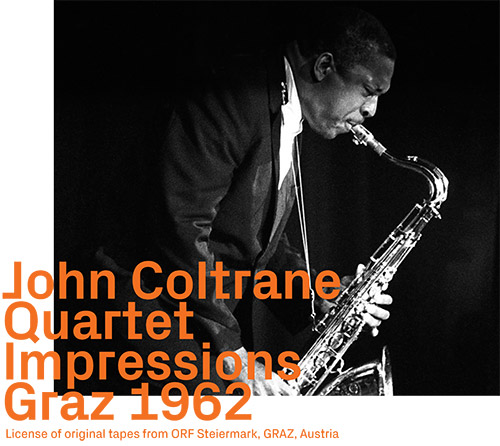



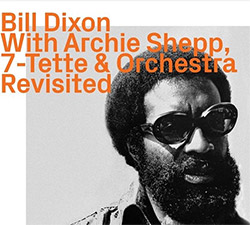


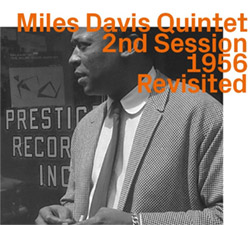
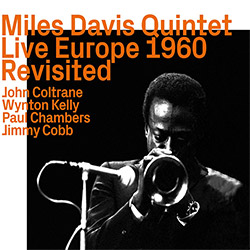
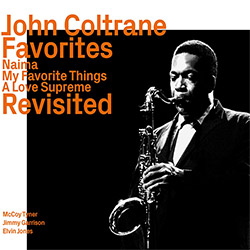


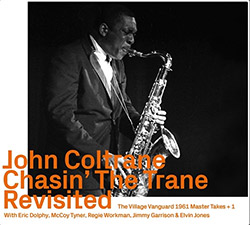
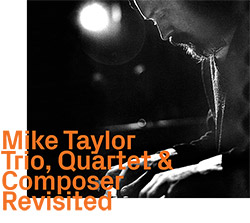
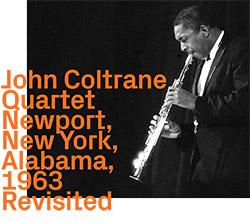


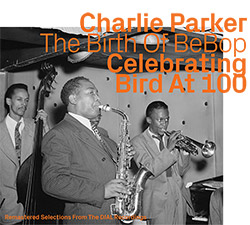
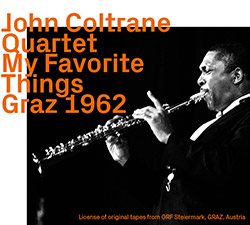
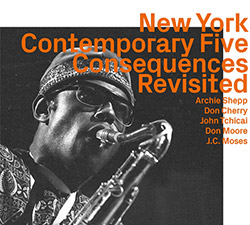
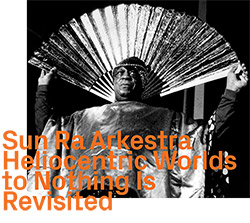
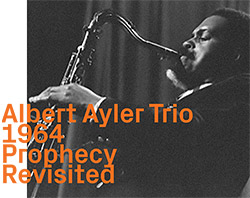
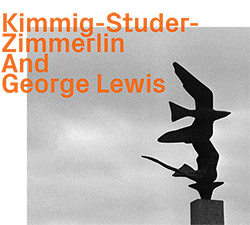
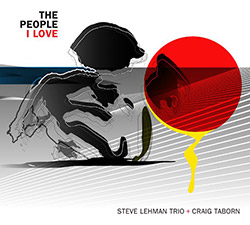
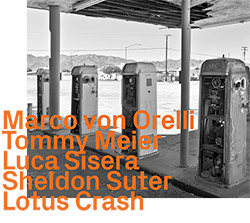






![BlueRing Improvisers: Materia [2 CDs]](https://www.teuthida.com/productImages/misc4/36513.jpg)








![Wheelhouse (Rempis / Adasiewicz / McBride): House And Home [VINYL]](https://www.teuthida.com/productImages/misc4/36462.jpg)
![+DOG+: The Light Of Our Lives [2 CDs]](https://www.teuthida.com/productImages/misc4/36009.jpg)


![Parker, Evan / Jean-Marc Foussat: Insolence [VINYL]](https://www.teuthida.com/productImages/misc4/36398.jpg)










![Deupree, Jerome / Sylvie Courvoisier / Lester St. Louis / Joe Morris: Canyon [2 CDs]](https://www.teuthida.com/productImages/misc4/36404.jpg)



![Eventless Plot | Haarvol: The Subliminal Paths [CASSETTE + DOWNLOAD]](https://www.teuthida.com/productImages/misc4/36232.jpg)










![Eventless Plot | Francesco Covarino: Methexis [CASSETTE + DOWNLOAD]](https://www.teuthida.com/productImages/misc4/36231.jpg)



![Das B (Mazen Kerbaj / Mike Majkowski / Magda Mayas / Tony Buck): Love [VINYL]](https://www.teuthida.com/productImages/misc4/36329.jpg)


![Eternities: Rides Again [CASSETTE]](https://www.teuthida.com/productImages/misc4/36247.jpg)
![Lopez, Francisco: Untitled (2021-2022) [2 CDs]](https://www.teuthida.com/productImages/misc4/36438.jpg)






![Money : Money 2 [2 CDs]](https://www.teuthida.com/productImages/misc4/35894.jpg)




![Klinga, Erik: Elusive Shimmer [VINYL]](https://www.teuthida.com/productImages/misc4/36258.jpg)
![CHANGES TO blind (Phil Zampino): Volume 9 - I Wave on a Fine Vile Mist [CD + DOWNLOAD]](https://www.teuthida.com/productImages/misc4/36061.jpg)

![Wallmart / Rubbish: Asset Protection [split CD]](https://www.teuthida.com/productImages/misc4/35900.jpg)


![+Dog+: The Family Music Book Vol. 5 [2 CDs]](https://www.teuthida.com/productImages/misc4/35897.jpg)
![Kuvveti, Deli : Kuslar Soyledi [CASSETTE w/ DOWNLOAD]](https://www.teuthida.com/productImages/misc4/36107.jpg)

![Brown, Dan / Dan Reynolds: Live At The Grange Hall [unauthorized][CASSETTE]](https://www.teuthida.com/productImages/misc4/36245.jpg)








![Palestine, Charlemagne / Seppe Gebruers: Beyondddddd The Notessssss [VINYL]](https://www.teuthida.com/productImages/misc4/36206.jpg)
![Palestine, Charlemagne / Seppe Gebruers: Beyondddddd The Notessssss [NEON GREEN VINYL]](https://www.teuthida.com/productImages/misc4/36207.jpg)

![Laubrock, Ingrid: Purposing The Air [2 CDs]](https://www.teuthida.com/productImages/misc4/35639.jpg)

![Yoko, Ono / The Great Learning Orchestra: Selected Recordings From Grapefruit [2 CDs]](https://www.teuthida.com/productImages/misc4/35841.jpg)









![Zorn, John / JACK Quartet: The Complete String Quartets [2 CDs]](https://www.teuthida.com/productImages/misc4/35609.jpg)

![Lonsdale, Eden: Dawnings [2 CDs]](https://www.teuthida.com/productImages/misc4/35480.jpg)



![Sorry For Laughing (G. Whitlow / M. Bates / Dave-Id / E. Ka-Spel): Rain Flowers [2 CDS]](https://www.teuthida.com/productImages/misc4/35985.jpg)

![Rolando, Tommaso / Andy Moor : Biscotti [CASSETTE w/ DOWNLOADS]](https://www.teuthida.com/productImages/misc4/36106.jpg)


![Electric Bird Noise / Derek Roddy: 8-10-22 [CD EP]](https://www.teuthida.com/productImages/misc4/35970.jpg)








![Elephant9 : Mythical River [VINYL]](https://www.teuthida.com/productImages/misc4/34624.jpg)



![Elephant9 with Terje Rypdal: Catching Fire [VINYL 2 LPs]](https://www.teuthida.com/productImages/misc4/35355.jpg)
![Deerlady (Obomsawin, Mali / Magdalena Abrego): Greatest Hits [VINYL]](https://www.teuthida.com/productImages/misc4/34876.jpg)







![Surplus 1980: Illusion of Consistency [CD]](https://www.teuthida.com/productImages/misc4/35069.jpg)
![Staiano, Moe: Away Towards the Light [VINYL + DOWNLOAD]](https://www.teuthida.com/productImages/misc4/35037.jpg)
![Coley, Byron: Dating Tips for Touring Bands [VINYL]](https://www.teuthida.com/productImages/misc4/17906.jpg)

![Lost Kisses: My Life is Sad & Funny [DVD]](https://www.teuthida.com/productImages/misc4/lostKissesDVD.jpg)